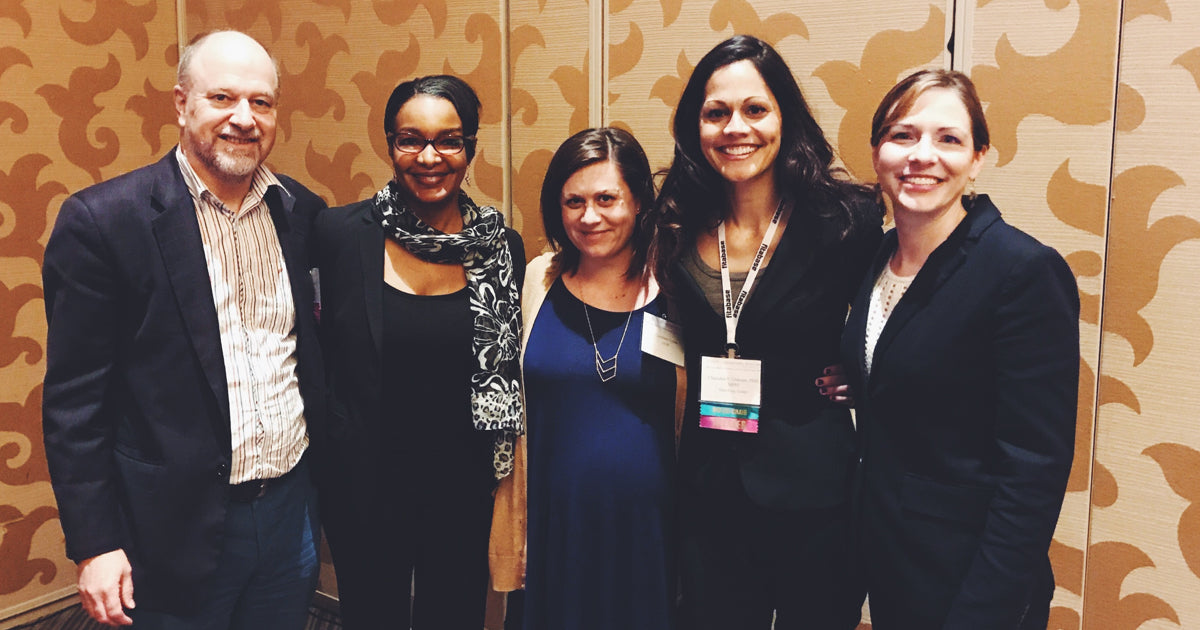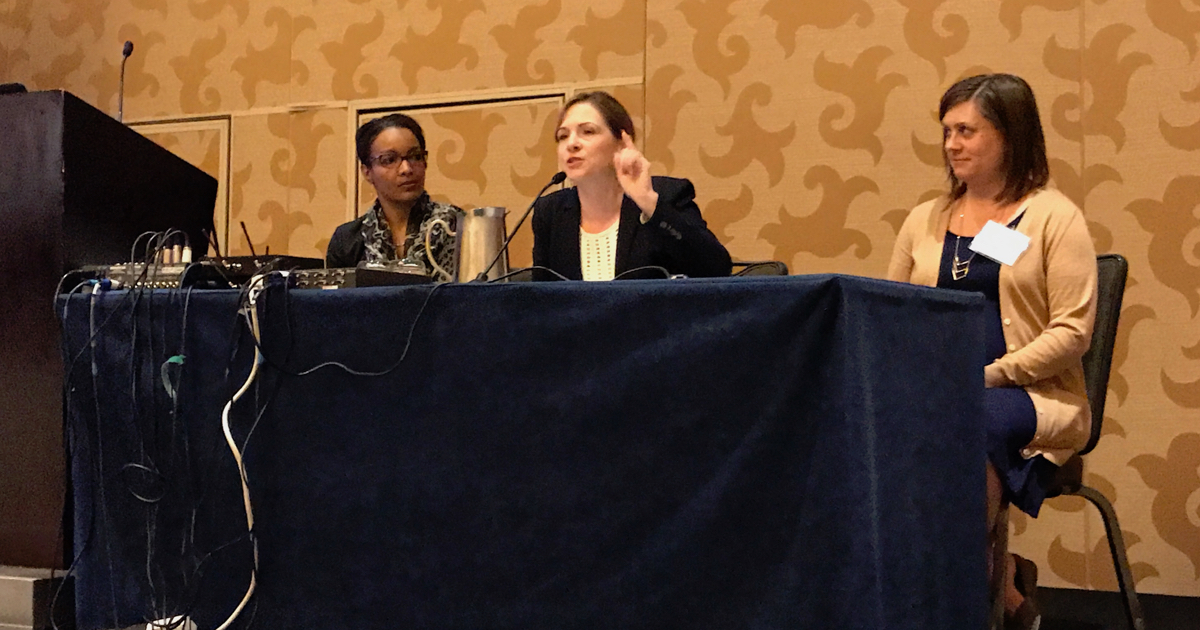Studies suggest tablet-, app-delivered, and text messaging programs improve self-care and glycemic control. Most programs are tested with people who are more affluent, educated, and White. Few have been designed for and tested with more high-risk groups who are more likely to have diabetes and its consequences.
The recent Society of Behavioral Medicine meeting brought together behavioral scientists in industry and academia with expertise in diabetes, tech, and minority health. As one of them, I chaired a session on “Leveraging technology to support vulnerable and disadvantaged people with diabetes: A review, examples, and recommendations.”
 Dr. Courtney Lyles is Assistant Professor of Internal Medicine at UCSF’s San Francisco General Hospital and Center for Vulnerable Populations. She's using tech to improve patient-provider communication, diabetes self-management, and reduce disparities in health. Dr. Lyles used tablets and user-centered design strategies to improve the experience of completing forms and answering questions during clinic intake.
Dr. Courtney Lyles is Assistant Professor of Internal Medicine at UCSF’s San Francisco General Hospital and Center for Vulnerable Populations. She's using tech to improve patient-provider communication, diabetes self-management, and reduce disparities in health. Dr. Lyles used tablets and user-centered design strategies to improve the experience of completing forms and answering questions during clinic intake.
Pearls from experts in diabetes, tech, and minority health
Dr. Monica Peek is Associate Professor of Medicine & Associate Director of the Center for Diabetes Translational Research at the University of Chicago. She’s leveraged technology to improve diabetes care and medical outcomes for people with diabetes on the South Side of Chicago. Dr. Peek presented a review of research on digital programs for people with diabetes who were of low socioeconomic status, a member of a minority group, or had limited literacy/numeracy skills.- She reported 11/12 text messaging intervention studies published from 2010-2015 reported glycemic control improvements.
- Few had a control group needed for causal conclusions.
- According to Dr. Peek, “A tailored digital touch with a human touch and coaching appears to work best.”
- The trial requires daily engagement for 9 months. At 3 and 6 months, over 80% of participants are engaged.
- According to Dr. Mayberry, “We attribute high rates of engagement to sending participants hand-written birthday cards, swag, monthly newsletters with recipes, expert advice, and research findings.”
- “The experience of being a research participant must be ultra-personalized. When you care, you have to show it.”
 Dr. Courtney Lyles is Assistant Professor of Internal Medicine at UCSF’s San Francisco General Hospital and Center for Vulnerable Populations. She's using tech to improve patient-provider communication, diabetes self-management, and reduce disparities in health. Dr. Lyles used tablets and user-centered design strategies to improve the experience of completing forms and answering questions during clinic intake.
Dr. Courtney Lyles is Assistant Professor of Internal Medicine at UCSF’s San Francisco General Hospital and Center for Vulnerable Populations. She's using tech to improve patient-provider communication, diabetes self-management, and reduce disparities in health. Dr. Lyles used tablets and user-centered design strategies to improve the experience of completing forms and answering questions during clinic intake.
- She iteratively worked with users to simplify and make visual patient questions and response options.
- The adaptation process resulted in high rates of satisfaction and completion rates.
- According to Dr. Oldenburg, “More digital diabetes programs should be developed and evaluated in lower and middle-income countries.”
- He also acknowledged, "Developing digital diabetes programs everyone can access & use is really challenging."
- All speakers and attendees nodded in unison.





